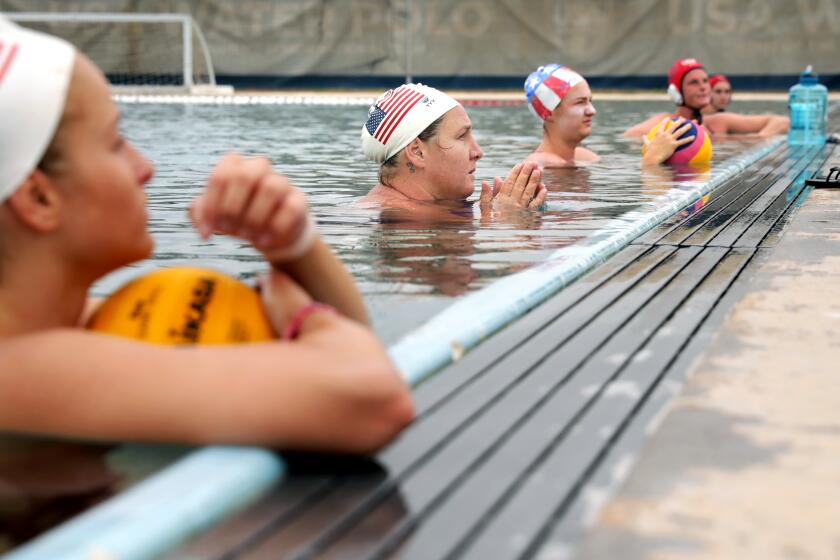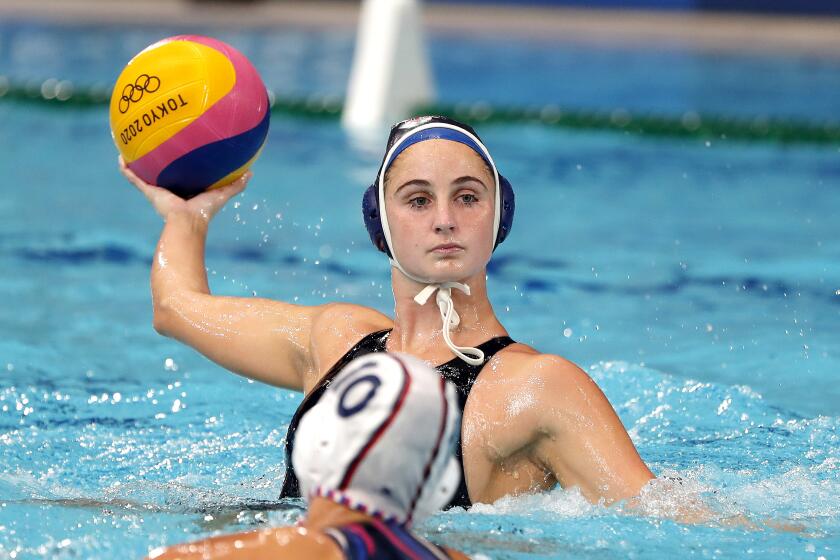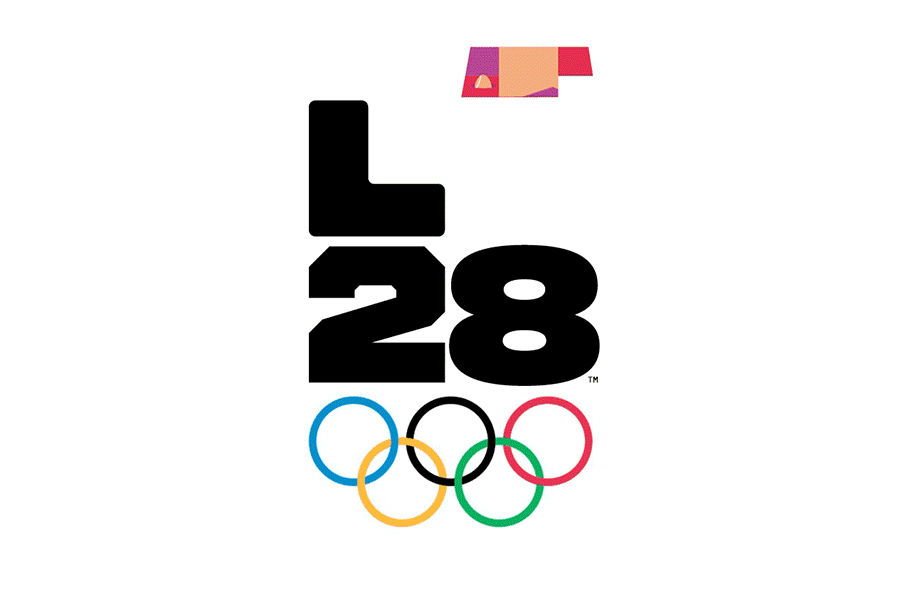U.S. women’s water polo defeats Spain to win third consecutive gold medal
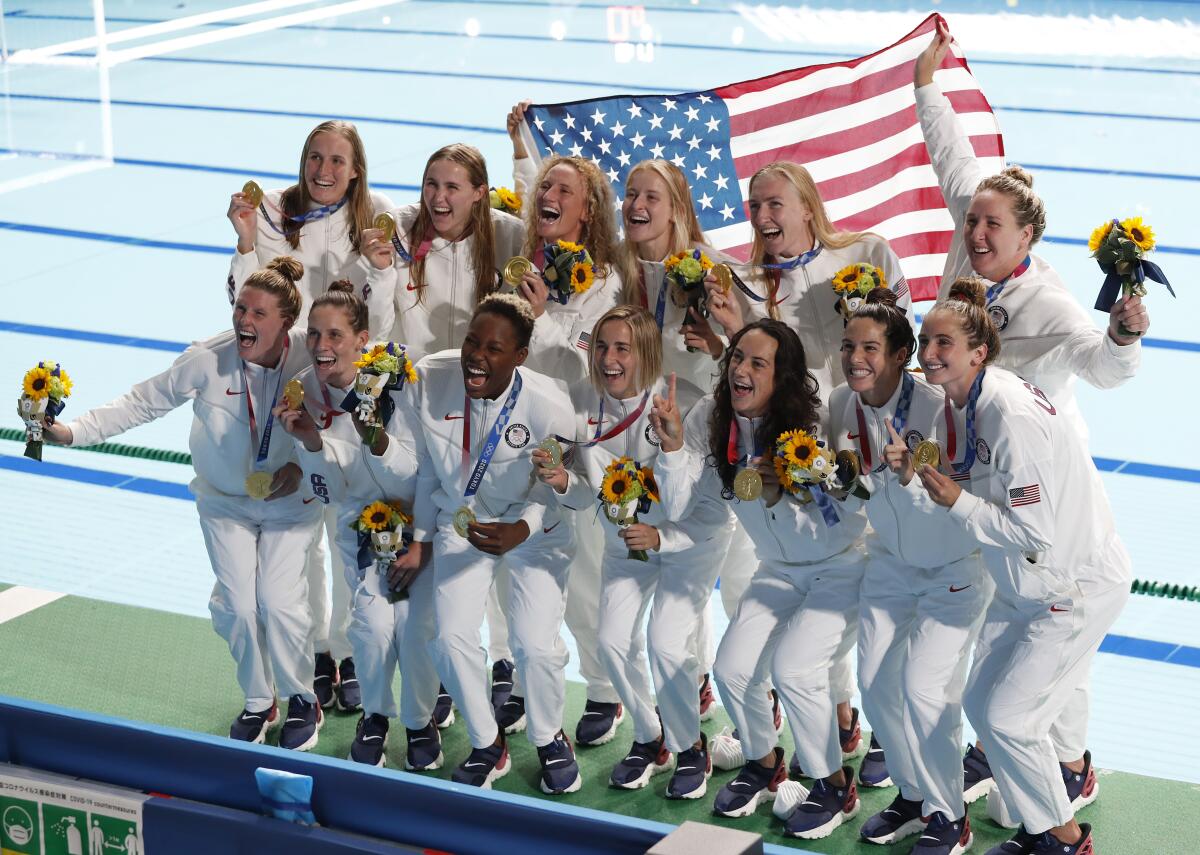
TOKYO — When the final buzzer sounded on the women’s water polo final Saturday, the seven U.S. players in the pool joined in a large, wet hug. Others poured off the bench to join the celebration.
On the pool deck, coach Adam Krikorian quietly sought out Kaleigh Gilchrist and wrapped his arms around her before they jumped into the water together, splashing about with joy.
“Every single one of them, there’s a connection,” said Krikorian, who has taken the U.S. to an unprecedented three straight gold medals. “But her story is remarkable, what she’s been through and how she’s battled back.”
Gilchrist came within a couple of millimeters of having her career ended when she sustained severe leg wounds in a balcony collapse in the summer of 2019. It took more than 100 stitches to close the cuts, but the psychological wounds are still raw because that was just one of three tragedies she had to deal with in rapid succession.
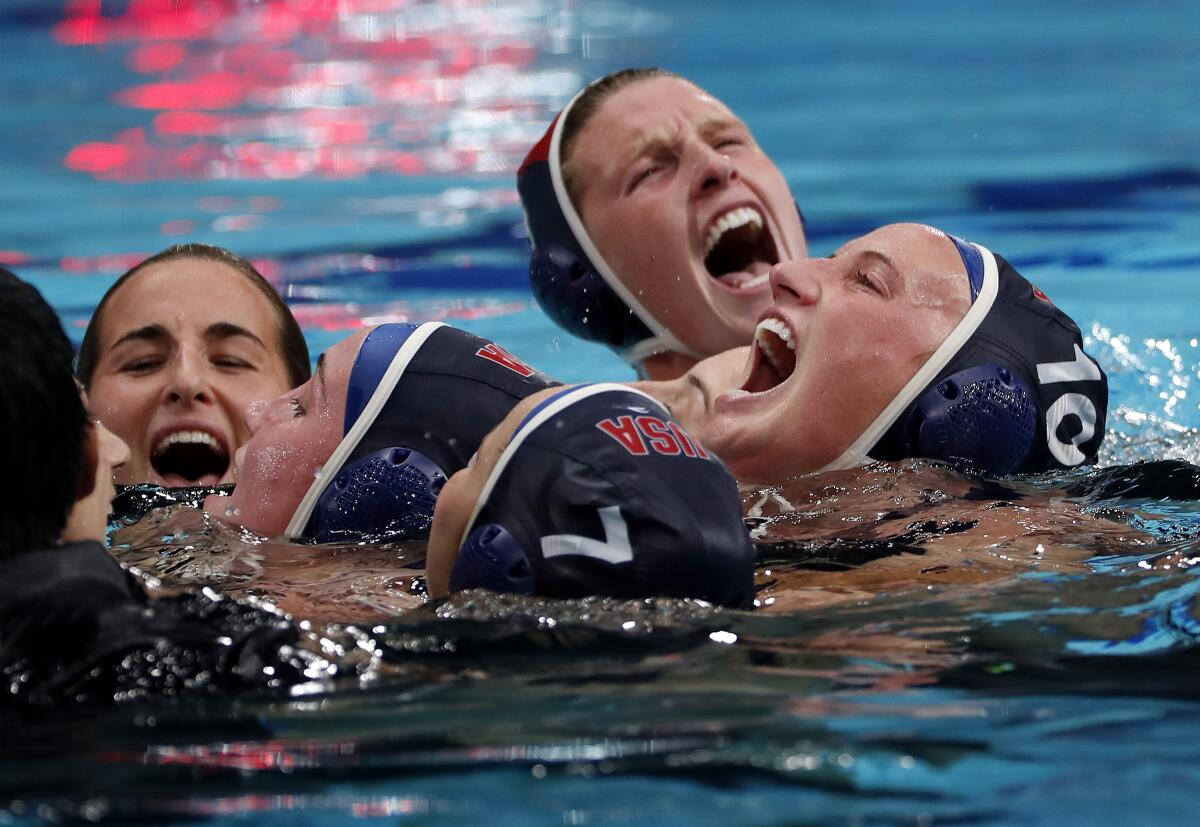
First, Bill Barnett, the high school coach who had nurtured her love of the sport, died. Then Kobe Bryant, the Lakers star and Newport Beach neighbor who inspired her in her rehab, was killed in a helicopter crash.
“I’m coming back from injury and losing mentors and dealing with panic and PTSD; it was a lot,” said Gilchrist, who wound up in physical and mental therapy. “It’s wild, you know. You dream of this moment and then I’m standing on the podium, just reflecting on everything we’ve gone through.“
Gilchrist wasn’t the only one who had to overcome adversity to get to the top of the medal stand, making Saturday’s comfortable 14-5 victory over Spain a triumph of spirit and perseverance as much as one of sport.
Alys Williams was at a country music concert in Las Vegas with teammates Melissa Seidemann and Maddie Musselman when a gunman opened fire from the 32nd floor of a nearby hotel, killing 59 and wounding 400, the deadliest mass shooting in American history. A year earlier Williams had been traveling through Europe when a missed train connection kept her from being in a Brussels station when a terrorist bomb went off.
Seidemann’s mother suffered a pair of strokes in Brazil during the last Olympics, then died in the run-up to this one. Other players were forced by the yearlong delay of the Tokyo Games to postpone school, retirement, jobs and other personal milestones.
“They all have their own story,” Krikorian said.
One player’s mother had a stroke. Another was a survivor of a mass shooting. Overcoming tragedy has strengthened the U.S. women’s Olympic water polo team.
Saturday those stories of survival and sacrifice converged in the Tatsumi Water Polo Centre near Tokyo Bay. And steeled by those experiences, the U.S. team made sure those sacrifices were not in vain.
“Stuff happens for a reason,” Williams said.
Krikorian had never lost an Olympic game as coach, and his team had lost just four of its previous 137 games, when Hungary beat it by a goal in the third game of the group stage in Tokyo.
Stunned, some players on the team looked at that game as a gut check. They hadn’t come this far and gone through what they had gone through to come home with anything other than a gold. Suddenly that resolve was being tested.

“It was all dependent on how we reacted to that loss,” said Seidemann, a three-time gold medalist. “You never know if it was good for us or not until the end. So I guess I can say today that that loss was good for us.”
The U.S. certainly left nothing to chance afterward, winning its final four games by a combined 37 goals. The final wasn’t in doubt either, with the Americans running out to a three-goal lead after one period and never looking back.
Musselman had a game-high three goals for the U.S., finishing with 18 for the tournament. Aria Fischer, Gilchrist and Williams each scored twice. Eight players contributed to the scoring, making the team’s victory truly a team victory.
The United States women’s water polo team advances to the gold-medal match after defeating the Russian Olympic Committee 15-11 at the Tokyo Olympics.
“Throughout all of the adversity we faced, we felt strong together,” said goalie Ashleigh Johnson, who made 11 saves in the final. “I’m glad that we showed up in this moment together, because it’s just a reflection of all of the things that we’ve been through.”
But if the U.S. win Saturday was about more than just water polo, then Krikorian insisted the Tokyo Olympics, which ends Sunday, was about more than just sport.
It too was about persevering through adversity, in this case a pandemic that in many ways took the fun out of the Games and made just taking part almost as important as winning — just as Baron de Coubertin wanted when he came up with the idea for the modern Olympic Games more than 120 years ago.
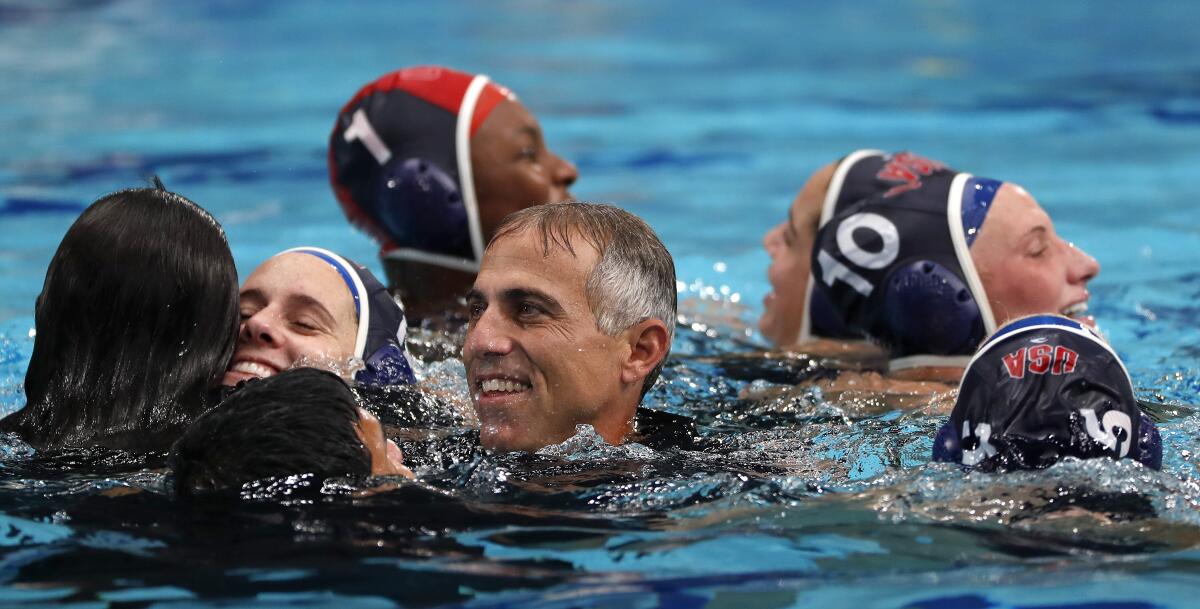
“Obviously the world has gone through a hell of a lot over the last 17 months. And many people have suffered. I don’t want to diminish that,” Krikorian said. “But what every Olympic athlete and coach and staff member has been [through] to get to this point is a fricking gold medal in itself. It’s been hard.
“It just takes us back to the beauty of the Olympic Games. It takes us back to, even when you’re struggling with the mental strength of these athletes, to show up and go through all of this, and to show up here to celebrate the world, to celebrate peace, to celebrate competitiveness.
“Yeah we won a gold medal. But every single person that’s been here has been through a heck of a lot.”
More to Read
Go beyond the scoreboard
Get the latest on L.A.'s teams in the daily Sports Report newsletter.
You may occasionally receive promotional content from the Los Angeles Times.

